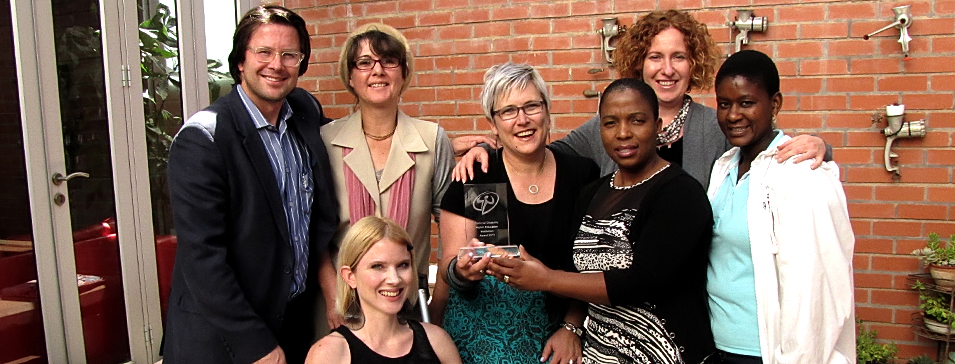Latest News Archive
Please select Category, Year, and then Month to display items
12 October 2020
|
Story Arina Engelbrecht
|
Photo Supplied
 Arina Engelbrecht from Organisational Development and Employee Well-being believes physical activity has a number of benefits for one’s health, including stress relief.
Arina Engelbrecht from Organisational Development and Employee Well-being believes physical activity has a number of benefits for one’s health, including stress relief.
Being physically active plays a big role in preventing the development of mental-health problems and in improving the quality of life of people experiencing mental-health problems.
Treatment for depression
Physical activity can be an alternative treatment for depression. It can be used as a stand-alone treatment or in combination with medication and/or psychological therapy. It promotes all kinds of changes in the brain, including neural growth, reduced inflammation, and new activity patterns are formed that promote feelings of calm and well-being. It releases endorphins – powerful chemicals in the brain that energise your spirit and make you feel good.
Physical activity can be very effective in relieving stress. Research in adults has found that physically active individuals tend to have lower stress levels compared to individuals who are less active. It also leads to improved sleep. When a person sleeps better and feels more rested, overall quality of life improves. They cope better with daily life stressors.
Reduce Alzheimer's risk
Regular physical activity can reduce your risk of developing Alzheimer's disease by up to 50%. It can also slow down further deterioration in those who have already started to develop cognitive problems. It stimulates the brain’s ability to maintain old connections as well as to make new ones.
A study asked people to rate their mood immediately after periods of physical activity (e.g. going for a walk/run, cycling, doing housework) and periods of inactivity (e.g. reading a book or watching television). Researchers found that participants felt more content, more awake, and calmer after being physically active compared to after periods of inactivity.
In conclusion, people who are physically active feel a sense of well-being, feel more energetic throughout the day, sleep better at night, have sharper memories, and feel more relaxed and positive about themselves and their lives.
“Being physically active not only changes your body, it changes your mind,
attitude, and your mood.” – Arina Engelbrecht
University recognised as leading Higher Education Institution for students with disabilities
2013-12-05
 |
The University of the Free State has been lauded for creating an inclusive environment for persons with disabilities, winning the 2013 National Disability Higher Education Institution Award. The award was presented at the National Disabilities Awards held in Port Elizabeth as part of the celebrations for International Day of People with Disabilities.
The Deputy Minister for Women, Children and People with Disabilities, Hendrietta Ipeleng Bogopane-Zulu, commended the university during the event for standing out among South African institutes of higher education. She told the audience the award gives recognition to institutions that demonstrate, through their strategy and policy, the provision of an inclusive environment for persons with disabilities. This is done through the use of technology and accessibility at their premises.
It's not the first time the university received praise from the deputy minister. In 2012 she visited the Bloemfontein Campus as part of a nation-wide roadshow to assess disability compliance and support services at all universities and FET colleges. Impressed with the work of the Unit for Students with Disabilities (USD), she recommended that staff from various higher education institutions visit the campus to gain insight into what they are doing.
Receiving the award on behalf of the university, Hetsie Veitch, Director of the USD, says the award recognises the commitment of the university’s senior leadership, who support the USD in creating a learning environment that is welcoming and accessible to all students.
Rudi Buys, Dean of Student Affairs, says the university is appreciative of what the USD does and says the award is a great achievement for a unit that only started functioning on its own three years ago. “The role of our support unit for Students with Disabilities has since 2010 grown to hold not only a prominent place in our institutional reflection on and implementation of approaches of universal access, but also to stand as leading department in building and bearing witness to the commitment of the UFS to values of universal access.”